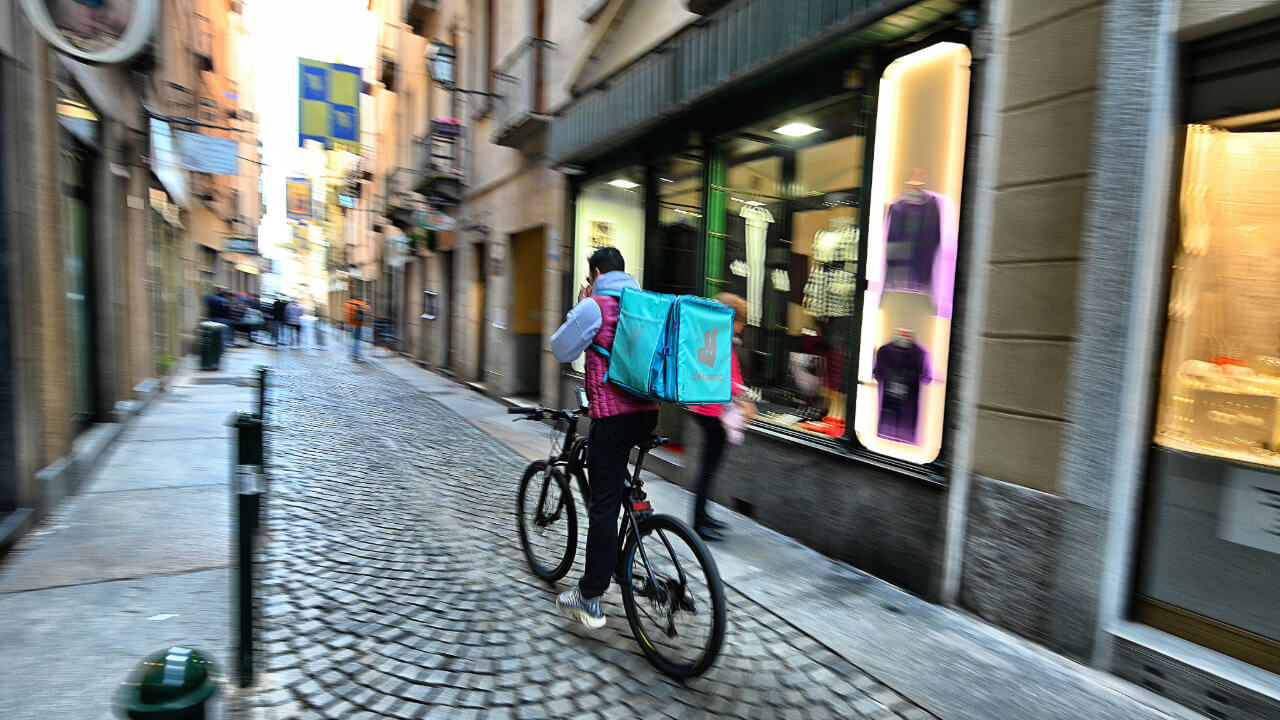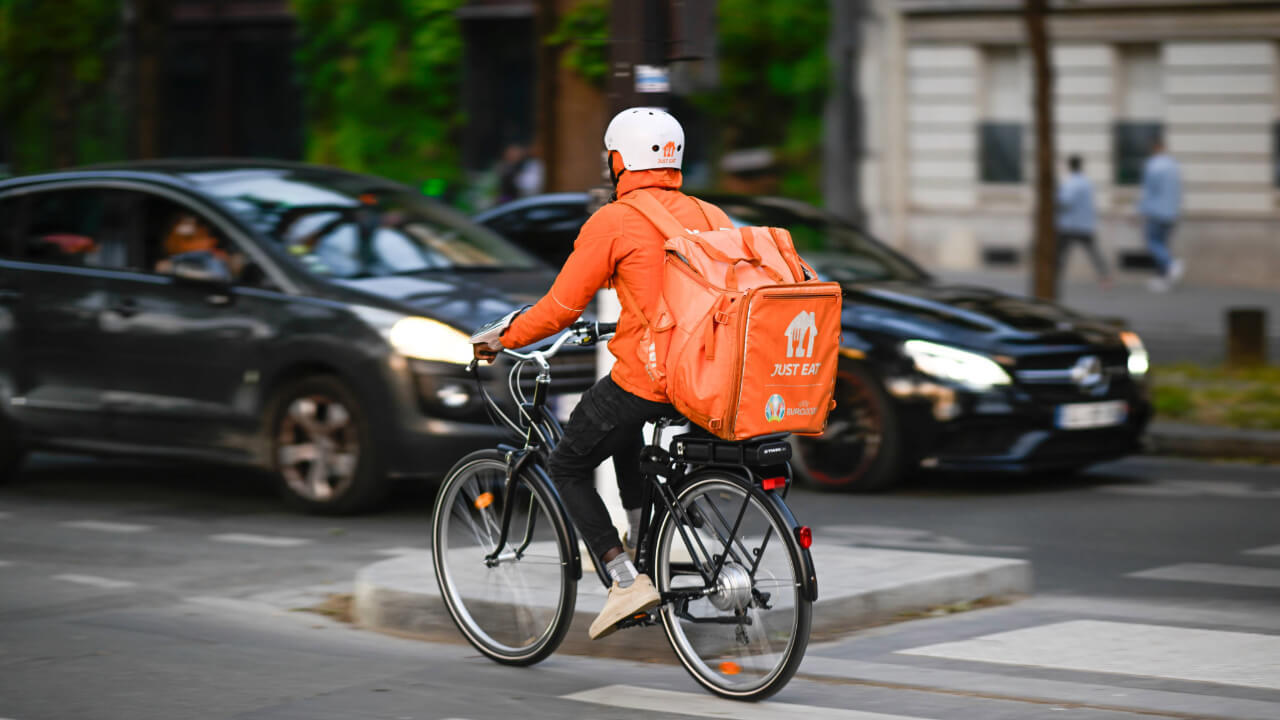Delivering Trouble: Government Targets Illegal Riders in Hospitality’s Shadow Economy
Posted by Emma on 24th Jul 2025 Reading Time:
The UK Government has launched a major crackdown on illegal working in the gig economy, targeting migrants operating as delivery drivers without legal work status, many of whom were found residing in taxpayer-funded asylum hotels. This follows growing pressure after a series of media exposés and political scrutiny highlighted widespread abuse of flexible working systems by individuals awaiting asylum decisions.
The announcement marks a significant policy shift, with the Home Office now sharing the locations of asylum seeker hotels with food delivery giants Deliveroo, Just Eat, and Uber Eats—a move previously resisted on grounds of safety.
“Illegal working undermines honest business, exploits vulnerable individuals and fuels organised immigration crime,” said Home Secretary Yvette Cooper, as she outlined the new steps. “By enhancing our data sharing with delivery companies, we are taking decisive action to close loopholes and increase enforcement.”
The policy shift comes amid reports that migrants arriving by small boats have been working as food couriers within hours of entering Britain. Many were seen operating under branded gear—riding for Deliveroo, Just Eat, and Uber Eats—despite laws that prohibit asylum seekers from working during their first 12 months in the UK.
Investigations revealed that some migrants were earning up to £1,000 per week while residing in accommodation funded by the British taxpayer. This not only raised questions about immigration enforcement but also about fairness for law-abiding businesses, particularly in sectors such as hospitality and foodservice, where margins are tight and regulatory compliance is crucial.
The agreement arms delivery platforms with more targeted data to identify misuse, specifically, riders frequently operating near asylum hotels. This will work in tandem with real-time ID checks, facial verification, and Right to Work technology that are already being rolled out by the platforms.

Eddy Montgomery, Director of Enforcement, Compliance and Crime at the Home Office, stressed the urgency:
“This next step of coordinated working with delivery firms will help us target those who seek to work illegally in the gig economy and exploit their status in the UK.”
Each platform has affirmed its commitment:
- Deliveroo stated: “Deliveroo has led the sector in introducing security measures to prevent the abuse of our platform… We are fully committed to working with the government as we continue to combat illegal working collectively.”
- Just Eat said: “We continue to invest significant resources to strengthen our systems against abuse by individuals and organised criminal groups… We are collaborating on data sharing and enforcement.”
- Uber Eats commented: “We have introduced a range of state-of-the-art detection tools to find and remove fraudulent accounts.”
While this crackdown targets delivery platforms specifically, it sends a clear message across the wider food and hospitality industries: illegal working is back in the crosshairs.
With nearly 750 civil penalty notices issued to businesses in the first quarter of the year alone—a record high since 2016—the hospitality sector, including fish and chip shops, must redouble efforts to ensure all workers are legally entitled to work. The government also confirmed that it will introduce legal requirements for all employers to verify the work status of their employees, including those using gig or freelance arrangements.
For many operators who already face rising food costs, energy bills, and staffing challenges, the increased enforcement may feel like yet another pressure point. However, it also levels the playing field. As one industry observer noted:
“Shops that do the right thing, checking documents and paying fair wages, have long been undercut by operations turning a blind eye. This policy begins to rebalance that.”

This is just one part of a broader immigration clampdown. The government unveiled a list of 25 entities targeted by new international sanctions, including criminal gangs behind people smuggling, fake passport networks, and small boat suppliers. Foreign Secretary David Lammy declared:
“My message to the gangs who callously risk vulnerable lives for profit is this: we know who you are, and we will work with our partners around the world to hold you to account.”
Still, experts remain cautious. Dr Madeleine Sumption, director of Oxford University’s Migration Observatory, argued:
“I’d be surprised if sanctions alone were a game changer. There are simply too many actors involved in this industry for targeted measures to dismantle it outright.”
For hospitality businesses—particularly independent operators in the takeaway sector—the takeaway is clear: compliance is not optional.
While most fish and chip shops don’t rely on gig workers in the same way as app-based platforms, many do use delivery services or third-party couriers. If these services are found to be enabling illegal work, shop owners may be inadvertently implicated.
Moreover, the increased scrutiny of right-to-work checks could soon extend to all forms of casual labour, temp staff, or trial shifts. Failure to comply could result in hefty fines or loss of licences—a risk no business can afford in today’s economy.
In an industry built on reputation, trust, and community standing, ensuring compliance is no longer just a legal obligation—it’s a competitive advantage.





